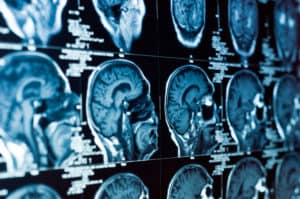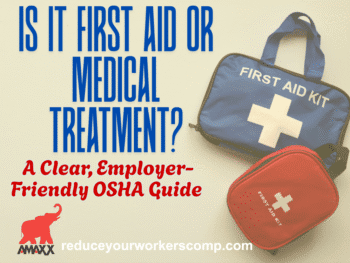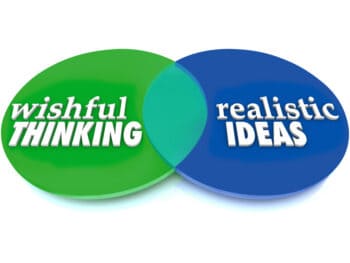
Growing awareness of traumatic brain injuries (TBI) requires members of the claim management team and other interested stakeholders to learn, and understand more about these complex injuries. This includes having a firm grasp on conditions associated with injuries to the head, common diagnostic testing, signs of injury, and proper investigation techniques.
What is a Traumatic Brain Injury?
Traumatic Brain Injuries do not fit one specific pattern or mechanism. It can include a variety of physical and psychological effects that result from blows to the head, or whiplash type events. The signs and symptoms of a TBI can vary, including the onset of symptoms shortly after the event. Common signs of a TBI include the following:
- Loss of consciousness for a few seconds, up to a few minutes;
- No loss of consciousness, but a state of being dazed, confused, or disoriented;
- Headache;
- Nausea or vomiting; and/or
- Fatigue or drowsiness.
A person’s motor skills can also be impacted following a TBI.
Click Link to Access Free PDF Download
“The 6-Step Process To Determine Workers’ Comp Injury Causation”
Expected Medical Care and Treatment
Medical care required to treat a TBI should not be a “one size fits all” approach. People react differently, and so is the healing process. Common medical procedures associated with a TBI include:
- Computerized Tomography (CT scan): This is a scan that uses a series of x-rays to study the brain. It can uncover evidence of bleeding on the brain, clots, and bruises;
- Functional MRI (FMRI Scan): This is a specialized MRI that helps a medical provider discover and measure brain activity. I can also uncover areas of the brain suffering an injury;
- Intracranial Pressure Monitor: Bleeding on the brain and swelling of tissue from a TBI causes pressure on the skull. This instrument measures the pressure inside one’s skull; and
- Neuropsychological Testing: There are various tests medical providers can conduct to study the impact an injury has on the brain. This testing can be short, or last over the period of several days. It can also help assess the cognitive, emotional, and behavioral impact of a TBI.
This list is not all inclusive. Members of the claim management team should always question the reasonableness and necessity of medical care, and make sure all treatment advances the injured employee toward a full recovery.
Common Signs of Traumatic Brain Injuries
It is important to remember that not all TBIs are the same. A TBI can also result from a “minor” incident, and does not require the person to lose consciousness. A variety of symptoms are associated with a TBI:
- Confusion or amnesia;
- Loss of memory or problems performing basic motor functions; and
- Tiredness, or a loss in appetite.
The Glasgow Coma Score is a tool used when a TBI involves the loss in consciousness. It is a test performed on initial examination to estimate the severity of the injury, and best direct medical care and treatment. This test is based on special awareness, verbal orientation, and motor response. The higher the scores, the less severe the injury. TBIs classified as being “mild” can generally be treated at home. Lower scoring injuries require hospitalization, and in severe cases immediate surgery to relief pressure on the skull.
Investigation Tips and Tricks
There are many important questions and pieces of information one must gather when investigating a TBI in the context of workers’ compensation. At a minimum, the following information is essential when investigating these claims:
- Mechanism of injury: Determine if the head struck and object and the force of the strike. Knowing the object the head struck is also important;
- Severity of injury: Information to receive should include whether there was a loss of consciousness, and if so, for how long. It is also important to determine the Glasgow Coma Scale information, if applicable; and
- Symptomology: It is important to obtain information on the physical, cognitive, and behavioral/emotion symptoms of the employee immediately following and after the injury. This information should be documented in medical records.
Conclusions
Our understanding of Traumatic Brain Injuries is changing the landscape of workers’ compensation. Members of the claim management team need to investigate this information in order to make proper claim handling determinations.

Author Michael Stack, CEO Amaxx LLC. He is an expert in workers’ compensation cost containment systems and helps employers reduce their workers’ comp costs by 20% to 50%. He works as a consultant to large and mid-market clients, is a co-author of Your Ultimate Guide To Mastering Workers Comp Costs, a comprehensive step-by-step manual of cost containment strategies based on hands-on field experience, and is founder & lead trainer of Amaxx Workers’ Comp Training Center.
Contact: mstack@reduceyourworkerscomp.com.
Workers’ Comp Roundup Blog: https://blog.reduceyourworkerscomp.com/
©2019 Amaxx LLC. All rights reserved under International Copyright Law.
Do not use this information without independent verification. All state laws vary. You should consult with your insurance broker, attorney, or qualified professional.
























